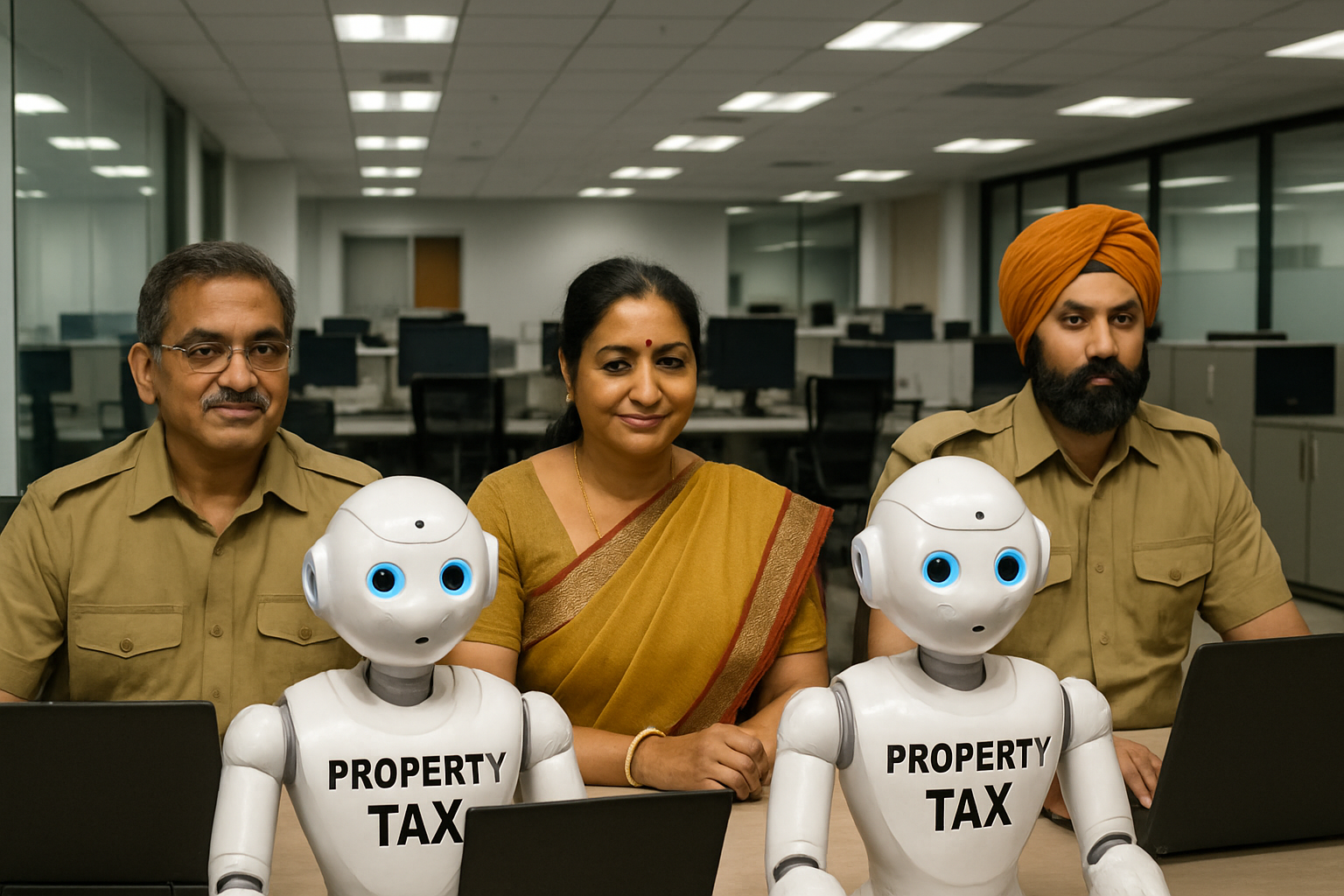Quick Take
- MCG collected ₹200 crore property tax revenue, achieving 72% of FY24-25 target using AI bots
- AI system generated ₹95 crore in July alone through automated taxpayer outreach
- Model successfully replicated from Yamunanagar pilot to Manesar and Gurgaon operations
- MCM matched previous year’s total with ₹29 crore collection using same AI approach
- Real-time bot assistance addresses payment difficulties and boosts compliance rates
Municipal corporations transform revenue collection through artificial intelligence — The Municipal Corporation of Gurgaon has generated ₹200 crore in property tax revenue this financial year, representing 72% of their annual target through AI bots driven collection systems that automate taxpayer outreach.
AI Bots Generate ₹95 Crore in Single Month
The dramatic revenue improvement stems from generative AI bots that contact property owners automatically. These systems provide real-time assistance for tax queries and payment difficulties.
“We are using AI bots to boost our property tax collection. Using AI, we generated ₹95 crore revenue in July alone,” MCG Additional Commissioner Yash Jaluka told Times of India.
The system identifies residents with outstanding dues, then deploys AI bots to engage property owners about payment challenges they face. Most contacted residents eventually paid their outstanding dues. This demonstrates automated communication’s effectiveness over traditional collection methods.
Data Segmentation Enables Targeted Collection Strategy
MCG’s approach involves comprehensive data analysis before outreach begins. Officials categorize property owners into distinct groups—those who promise to pay, others who refuse completely, and residents facing genuine payment difficulties.
“We took the data of self-certified properties with the highest dues and used generative AI, which is a bot, to call the owners. This bot answers in real time. If you did not pay property tax, it will ask you what difficulties you faced and subsequently address your concerns,” Jaluka explained to reporters.
This personalized approach replaces traditional collection notices with empathetic, interactive communication. The system addresses specific taxpayer concerns directly.
Successful Model Replication Across Multiple Cities
The AI model started as a pilot project in Yamunanagar before successful implementation in Manesar and Gurgaon. MCM has collected ₹29 crore so far this financial year, matching their entire property tax revenue from the previous fiscal year.
“We successfully replicated the AI model in Manesar and Gurgaon, collecting ₹29 crore so far, equal to the property’s previous fiscal year’s total tax revenue,” Sinha told media outlets.
This replication proves the model’s scalability across different urban centers. The success suggests other municipal corporations can adopt similar AI-driven collection strategies nationwide.
Citizen Expectations Rise with Revenue Growth
Increased revenue generation brings heightened citizen expectations for better infrastructure. Citizens want visible improvements in city development. However, implementation challenges remain significant for municipal operations.
“The city lacks sufficient workforce and machinery to function effectively. MCG should learn from other municipal corporations and invest in appropriate machinery,” said Gauri Sarin, convener of Making Model Gurugram.
This feedback highlights a crucial challenge: higher tax collection must translate into improved public services. The goal is maintaining citizen trust in AI-driven taxation systems.
Business Applications Beyond Government Revenue
The MCG model demonstrates AI’s practical application beyond marketing hype. Real-time query resolution drives measurable results. Private businesses managing subscription or service payments could adopt similar automated communication approaches.
Companies can leverage empathetic automation to reduce payment defaults while maintaining customer relationships. The technology proves valuable when focused on specific operational problems like revenue collection and payment facilitation.
Strategic Implications for Municipal Technology Adoption
Municipal corporations nationwide are likely monitoring MCG’s success closely. The model’s replication across multiple cities suggests broader adoption ahead. This could potentially reshape how local governments interact with citizens while improving service delivery.
For Indian businesses, the lesson remains clear: AI adoption works best when addressing concrete operational challenges with immediate measurable benefits. This proves more effective than pursuing technology implementation for its own sake.
Transparency: Revenue figures and collection percentages preserved exactly as reported in original sources.






